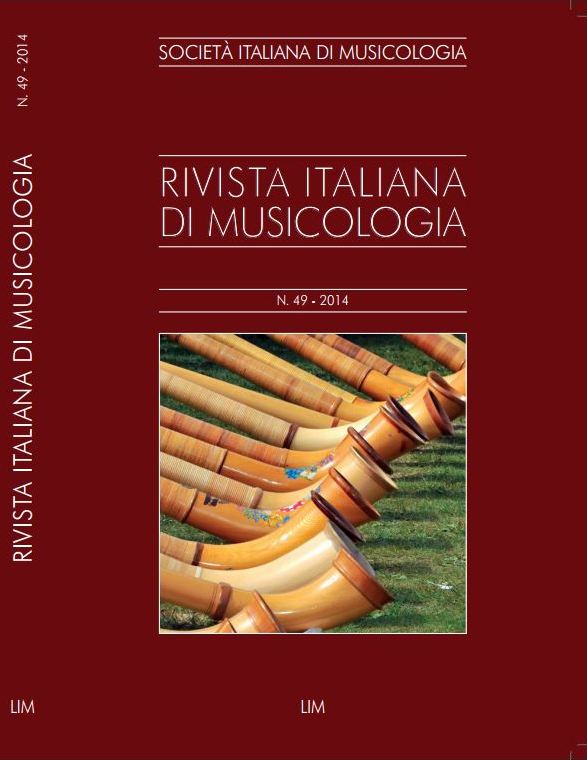«Bolognese, musico di S.M. Cesarea»: sulle tracce di Costantino Ferrabosco
Abstract
Costantino Ferrabosco belonged to a family of musicians active in Italy, Austria and England from the first half of Sixteenth to the late Seventeenth century. His most famous work is his collection of Canzonette a 4 voci published in Nuremberg in 1590, in which he describes himself as «Bolognese, musico di S.M. Cesarea» (the Emperor Rudolf II of Habsburg). Costantino Ferrabosco was born in Bologna probably after 1550 and was the second child of Ercole, Domenico Maria Ferrabosco’s cousin, although there are no traces of his name in the Baptismal Records. There are no extant records about his early years as a musician, although it is likely that he was in Austria, where his brother Mattia worked as chapel master at the service of the Habsburgs in 1581. The Canzonette contains the dedicatory phrase «To the most illustrious Lord Christoffano Fuccari, Baron of Kirchberg and Weissenhorn». We can identify him with Johann Christoph Fugger, an influential member of a branch of the German banking family, who previously had relationships with the Ferrabosco family. Back in Italy, we find him in Ancona in 1591 as the cathedrals chapel master. According to Raffaele Casimiri, he became chapel master in the Fermo’s cathedral in 1591. There he worked at the inventory of the music owned by the crape. His presence, however, is not recorded in the Chapter’s records. The following year, he was elected chapel master in Ascoli Piceno. The date of his death is uncertain, but it can be placed around the year 1600. While Costantino’s profane music is well known, his sacred production has been neglected by scholar thus far. The discovery of a manuscript held in the Spoleto Cathedral containing a five-voice requiem mass, sheds new light on his output: although in a severe style, according to the mandates of the Roman School, this mass, with its more vibrant style enriched by chromatisms, reveals strong influences from the Venetian School.##submission.downloads##
Pubblicato
05/28/2014
Fascicolo
Sezione
Saggi


